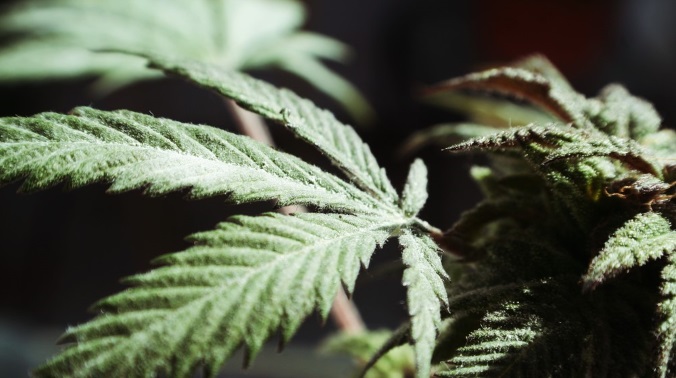The therapeutic power of cannabis for treating everything from pain and epilepsy to cancerous tumors is now backed by dozens of scientific studies and has led to the legalization of marijuana for medical purposes across more than half of the U.S. However, many experts still warn that regular use can lead to cognitive and psychological problems. And indeed, several studies have shown that delta-9-tetrahydrocannabinol (THC), the psychoactive ingredient in cannabis, can induce things like memory loss and may even trigger schizophrenia in those who are predisposed.
But numerous studies have shown that another, non-psychoactive, compound in cannabis, cannabidiol (CBD), can protect against the harmful effects of THC.
THC and CBD: It’s All About the Ratio
In a study conducted at Indiana University, researchers gave one group of mice injections of THC during adolescence and early adulthood, another group received pure CBD, and a third group received an equal measure of both THC and CBD. The mice who were given THC alone showed problems in working memory and increased anxiety, while those who only received CBD showed no cognitive changes. Amazingly, however, all cognitive abnormalities were also prevented in the group that was given the mix of both THC and CBD.
“The finding that co-administration of equal amounts of CBD with THC prevented the emergence of all behavioral deficits supports the epidemiological finding that higher CBD content in cannabis reduces risk for psychotic disorders,” the study concluded, while also stating, “furthermore, encouraging the cultivation and consumption of ‘balanced’ CBD cannabis (i.e., roughly equal proportions of CBD and THC), over lower CBD cannabis, may be a reasonable strategy for harm reduction.”
Cannabis Potency on the Rise
The potency of cannabis has drastically changed over the last two decades, according to an analysis done in 2016 by the University of Mississippi and the University of West Georgia. Back in 1995, according to the researchers, THC levels averaged 4 percent in cannabis used recreationally across the U.S. That number has risen to over 12 percent by 2014. This change in potency is the result of advanced breeding techniques designed to create stronger and stronger hybrid strains for a market where high-end bud can sell for more than $2,000 per pound.
The analysis also found that over the same two-decade period, the amount of CBD in cannabis fell, going from an average of 0.28 percent to less than 0.15 percent. The ratio between THC and CBD is much more imbalanced in the marijuana that is on the market today than it ever has been in the history of the plant’s use. As growers compete to create strains with ever-higher concentrations of THC levels, the result is an abundance of marijuana that is now so strong that it can cause cognitive problems and psychological distress in some segments of the population.
CBD is a Neuroprotectant
The finding that CBD protects against these adverse effects is cause to celebrate. CBD is a non-toxic, non-psychoactive, and incredibly abundant substance that is found not only in flowering marijuana but also in hemp, the fast-growing fibrous variety of cannabis used for everything from clothing to paper. CBD has been shown to have numerous health benefits of its own (even more than THC) and is finally coming into the limelight as a powerful natural medicine for modern times — especially as a neuroprotectant, which is why it can counter the negative side effects of high-potency marijuana.
In fact, back in 2006, a group of Brazilian researchers at the University of Sao Paulo — after noticing that CBD could reduce the anxiety symptoms of those intoxicated by THC — tested CBD on patients with ketamine-induced schizophrenia. They found that CBD is a potent antipsychotic that performed just as well as pharmaceuticals in reversing the schizophrenia without any side effects and concluded that “this cannabinoid can be a safe and well-tolerated alternative treatment for schizophrenia.”
CBD is also known for being a miracle medicine for those suffering from neurological disorders like epilepsy, with even the American Epilepsy Society (AES) recently claiming that it is a promising and well tolerated natural therapy for treatment-resistant epilepsies in children.
Restoring a Natural Balance
So, while too much THC may be problematic, the fault is not in the cannabis plant itself. Marijuana naturally produces CBD to protect and counteract any of the cognitive or neurological problems that THC might cause itself — until it was bred to do otherwise. Natural strains of cannabis have much closer ratios of THC to CBD, which provides this protection automatically.
While the interest in CBD is now starting to catch up to THC and growers are finally beginning to focus their attention on growing CBD-rich strains, keep in mind that CBD can also be taken concurrently with THC to mitigate and neutralize any unwanted cognitive or psychological side effects. CBD-rich oils can be used alongside cannabis for extra relaxation and neuroprotective effect, keeping the balance of these potent chemicals in a ratio that is closer to the way nature intended.

